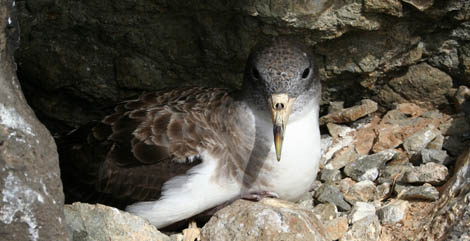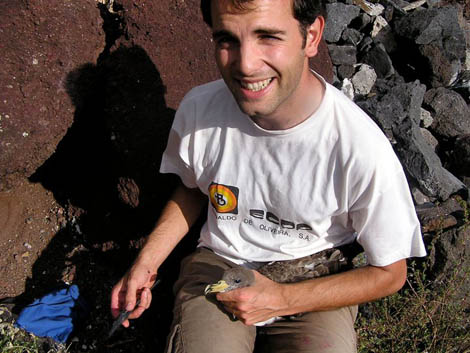 Climate change is causing increasingly serious implications for the marine ecosystem, making it essential to rethink Fisheries Management to avoid the rupture of marine “stocks” (fish), reveals a study carried out by a team of researchers from the University's Instituto do Mar Coimbra (IMAR), the Portuguese Institute of the Sea and Atmosphere (IPMA) and the University of Kiel (Germany).
Climate change is causing increasingly serious implications for the marine ecosystem, making it essential to rethink Fisheries Management to avoid the rupture of marine “stocks” (fish), reveals a study carried out by a team of researchers from the University's Instituto do Mar Coimbra (IMAR), the Portuguese Institute of the Sea and Atmosphere (IPMA) and the University of Kiel (Germany).
To assess and better understand the implications of climate change for the health of the oceans, the researchers used the Cagarras, a top marine predator very abundant in the islands of the Azores and Madeira, as a study model.
Over the past few years, using small remote tracking devices (GPS) placed in a wide range of Shearwaters, the team has identified and analyzed in detail the movements of these birds at sea and the factors that cause changes in their behavior.
 According to the study, in 2010 and 2011, “climate change had strong implications for marine resources. Shearwaters, which usually have a distribution close to the coast, were forced to travel across the Atlantic, as far as Canada, to get food. This reveals that he hears profound changes that caused the absence of fish on the Portuguese coast», observes Vítor Paiva, coordinator of the study.
According to the study, in 2010 and 2011, “climate change had strong implications for marine resources. Shearwaters, which usually have a distribution close to the coast, were forced to travel across the Atlantic, as far as Canada, to get food. This reveals that he hears profound changes that caused the absence of fish on the Portuguese coast», observes Vítor Paiva, coordinator of the study.
Due to the top position that Cagarras occupy, the continuous observation of their movements and behavior, «provides information that allows us to assess the implications of climate change throughout the food chain. We have seen significant changes in the marine ecosystem that indicate the need to take steps to ensure sustainable exploitation of the sea. Otherwise, there is a risk that, in the future, there will be a drop in the availability of some species of commercial value (eg sardines)», emphasizes the researcher from the Instituto do Mar at the UC.
The research, funded by the Foundation for Science and Technology (FCT), is also intended to help define marine protected areas on the Portuguese coast.
Author: Cristina Pinto (Press Office – University of Coimbra)
Science in the Regional Press – Ciência Viva

















Comments